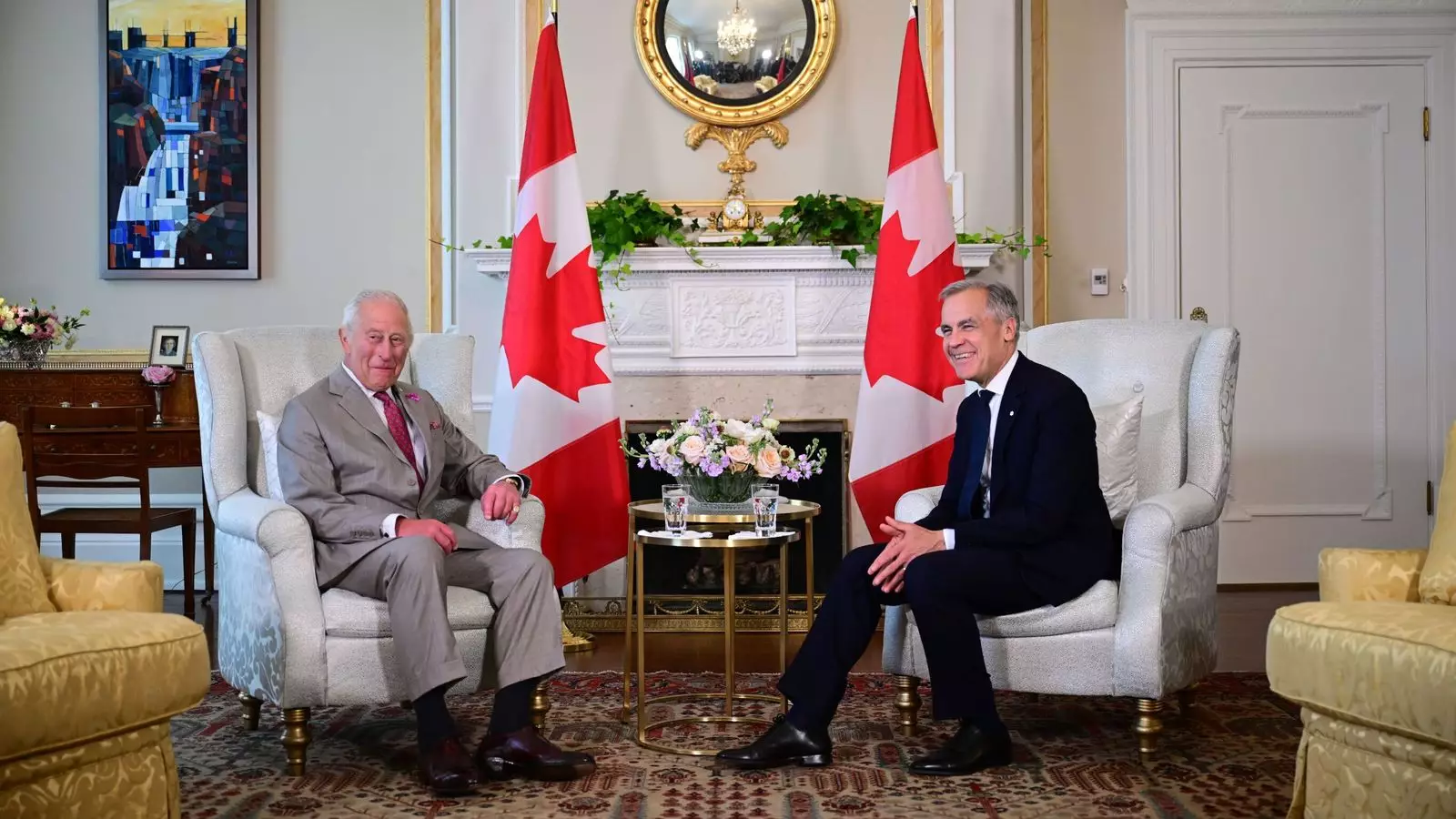In the history of Canada, a haunting chapter dedicated to the so-called “Home Children” often slips between the cracks. These British children, numbering over 100,000, were shipped across the Atlantic from 1869 to 1948, often stripped of dignity and agency under the guise of ‘reform.’ Many intended for a new life instead found themselves in the harsh grip of exploitation, working as cheap laborers on farms or as domestic servants. The indifference they faced was not only appalling but speaks volumes about societal failures in recognizing the humanity of these children. The ongoing calls for an apology, particularly as King Charles and Queen Camilla prepare to visit Canada, present a moment ripe for reflection and action.
A Cry for Acknowledgment
Campaigners, led by advocates like John Jefkins—whose father was a victim of this catastrophic policy—are urging the royal couple to seize this opportunity to push for a formal apology from the Canadian government. Given the royal family’s unique position within the Commonwealth, such an act could help facilitate a long-overdue dialogue acknowledging the sins of the past. The lack of Canadian acknowledgment of their involvement in these wholesale migrations, unlike the UK and Australia, contributes to the ongoing silence surrounding this tragic legacy. Canada’s failure to own up to its history renders the Home Children and their descendants voiceless in a society that prides itself on multiculturalism and inclusivity.
Rethinking our National Identity
The invitation for royal intervention isn’t just about seeking an apology for historical grievances; it’s about instilling a sense of national responsibility and reckoning in Canada. During his earlier visit, King Charles emphasized the importance of confronting historical injustices. His words resonate deeply today as Canada grapples with its historical narrative. The issue of Home Children deserves a place in the broader discourse around Canada’s past, particularly in considering how the fabric of Canadian society was stitched together by individuals enduring profound hardship. It raises uncomfortable questions about whose legacy we celebrate and whose suffering we forget.
As we advocate for an apology, we must also shift the conversation towards the broader implications of these injustices. The call for acknowledgment is not merely an act of contrition but a vital part of fostering understanding and preventing historical amnesia. When Canada confronts its past frankly, it creates a moral obligation to listen to underrepresented voices and repair damages inflicted historically.
The Role of Royalty in Change
The presence of the monarchy in Canada carries both ceremony and, arguably, a potential for meaningful discourse. It is a double-edged sword—while some may view it as an outdated institution, others see it as a unique platform that can catalyze change. King Charles’ visit symbolizes an opportunity for reconciliation, not just between nations but between the pain of the past and the path forward.
Furthermore, this royal engagement encapsulates the broader dynamics at play in the contemporary Canadian political landscape. As Prime Minister Justin Trudeau seeks modern sovereignty, the King’s potential push for an apology could signify a new beginning for recognizing Canada’s complex history.
In a nation where many confront feelings of cultural detachment or marginalization, acknowledging the plight of the Home Children can serve as a stepping stone toward healing and unity. By emphasizing the significance of this past, we herald a commitment to ensuring that such injustices do not repeat themselves—an essential part of developing a just and equitable society.
A Collective Responsibility
As we await the royal visit, the conversation must evolve beyond historical grievances to contemporary implications. It invites Canadians to engage with their civic responsibility actively. An apology from the Canadian government would not merely be a gesture but a cornerstone for rebuilding the relationship with those who bear the scars of neglect and exploitation.
In pushing for this acknowledgment, Canadians would demonstrate resilience and maturity in facing their history with the same lens of compassion they extend to their present society. The time has come for King Charles and Queen Camilla to become champions of this cause, allowing the voices of the Home Children and their descendants to finally be heard—not as whispering shadows of the past, but as integral parts of a country in search of true reconciliation.


Leave a Reply